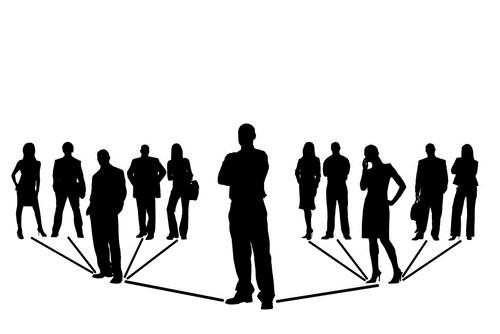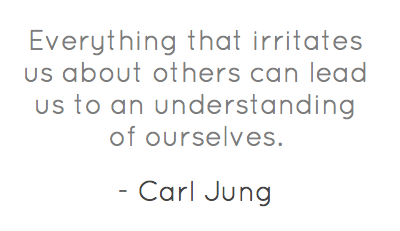Putting human mind in naked is among the defects of psychology learning

Image Source
Interaction with things may shape propensities for outer adjustment. However, it prompts activity having a significance and cognizant expectation just when things are utilized to create an outcome. The main way an individual can change the mind of another is by utilizing physical conditions, rough or counterfeit, in order to summon some noting activity from him.
It is attractive to increase and uphold them by putting them conversely with the hypothesis which utilizes a psychology of gathered direct connections of human beings to one another as a subordinate to the psychology of the assumed direct connection of a person to physic`al objects. In substance, this alleged social psychology has been based upon the idea of imitation.
Social control of people rests upon the instinctual propensity of people to mirror the actions of others. The last fill in as models. The imitative sense is strong to the point that the young give themselves to complying with the patterns set by others and repeating them in their own plan of conduct.
What is here called imitation is a deceptive name for sharing with others in an utilization of things which prompts outcomes of basic interest. The fundamental mistake in the present thought of imitation is that it has things in the wrong order. It produces a results for the reason for the impact.

Image Source
There can be almost certainly that people in framing a social group are similarly invested, they comprehend one another. They tend to act with the same controlling thoughts, convictions, and expectations, given comparable conditions. They may be said to be occupied with imitating one another. As in they are doing much a similar kind of thing in much a similar kind of way, this would be sufficiently genuine.
Imitation tosses no light upon why they so act, it rehashes the fact as a clarification of itself. It is a clarification of an indistinguishable request from the celebrated saying that opium puts men to rest due to its dormitive power. Target resemblance of acts and the mental satisfaction found in being in congruity with others are immersed by the name imitation.
This social fact is then taken for a psychological power, which delivered the resemblance. A significant bit of what is called imitation is essentially the fact that people being indistinguishable in structure react similarly to like stimuli. Independently of imitation, men on being offended get furious and assault the insulter.

Image Source
This statement might be met by refering to the undoubted fact that reaction to an affront happens in various courses in groups having diverse traditions. In one group, it might be met by plan of action to fisticuffs, in another by a test to a duel, in a third by a presentation of derisive carelessness. This happens in light of the fact that the model set for imitation is extraordinary. Be that as it may, there is no compelling reason to interest imitation.
The minor fact that traditions are distinctive implies that the actual stimuli to conduct are unique. Cognizant guideline has an impact, earlier endorsements and objections have an expansive impact. Still more powerful is the fact that unless an individual acts in the route current in his group, he is truly out of it. He can connect with others on private and equivalent terms just by acting in the manner by which they carry on.
The weight that originates from the fact that one is let into the group action by acting in one way and close out by acting in another way is unremitting. What is known as the impact of imitation is chiefly the result of cognizant direction and of the particular impact practiced by the oblivious affirmations and sanctions of those with whom one partners.

Image Source
References:
Psychology Understanding Human Behavior"
Understanding human behavior: Taking a more complex approach
Agents of social control
This is why quick reaction produces bad results, but delayed reaction could choose a good response...thanks for sharing sir. @juvyjabian ...
Downvoting a post can decrease pending rewards and make it less visible. Common reasons:
Submit
excellent post, well explained there are many things to learn, I will investigate the subject more deeply, it is not easy to undress the human mind
Downvoting a post can decrease pending rewards and make it less visible. Common reasons:
Submit
Actions also leaves imprints on our mind and repeated actions gives rise to tradition even in society. Cognizant behaviours can be matched in terms of social behaviour and can be see when an individual acts in a way simply because everyone he knows acts in a similar manner. Nice write up. Insightful and keep it up.
Downvoting a post can decrease pending rewards and make it less visible. Common reasons:
Submit
nice post
Downvoting a post can decrease pending rewards and make it less visible. Common reasons:
Submit
You got a 2.07% upvote from @postpromoter courtesy of @juvyjabian!
Want to promote your posts too? Check out the Steem Bot Tracker website for more info. If you would like to support the development of @postpromoter and the bot tracker please vote for @yabapmatt for witness!
Downvoting a post can decrease pending rewards and make it less visible. Common reasons:
Submit
I appreciate this post. well explained and easy to understand, thanks for sharing....
Downvoting a post can decrease pending rewards and make it less visible. Common reasons:
Submit
amazing post, congratulations, friend
Downvoting a post can decrease pending rewards and make it less visible. Common reasons:
Submit
What psychological traits could negate ones ability to imitate others psychological tendencies? Are some sociopaths, psychopaths, and others afflicted with mental illness more or less susceptible to mirror others behaviors may it be conscious or not?
Downvoting a post can decrease pending rewards and make it less visible. Common reasons:
Submit